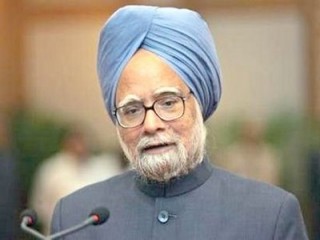
Manmohan Singh biography
Date of birth : 1932-09-26
Date of death : -
Birthplace : Gah, West Punjab, India
Nationality : Hindi
Category : Politics
Last modified : 2010-07-22
Credited as : Politician and economist, Prime Minister of India, World's political leader
1 votes so far
Manmohan Singh became India’s first Sikh prime minister in May of 2004. The former finance minister and academic was highly regarded for leading the country’s economic reform of the 1990s. Low-key, honest, and hard-working, Singh’s rise to the top job was met with approval by much of the world.
Humble Origins to Scholar
Singh was born into poverty in 1932 in the Punjab province of what is now Pakistan. During his primary school years, the family sometimes went hungry and the promising young scholar was forced to study under a street light, as there was no electricity in the house. Before the partition of 1947, in which India and Pakistan became independent of Great Britain, the family moved. But Singh never forgot his unfortunate beginnings. Years later, in 2004, Laurinda Keys of CNEWS quoted him as saying, "I was born in a poor family...I know, therefore, that India needs to be emancipated from war, want(,) and exploitation."
Despite Singh’s early challenges, his academic talent gave him a means of escape. Economics was his field in college, and he eventually earned M.A. and Ph.D. degrees in the subject at Oxford University. In 1957, Singh began a successful teaching career that included posts at such prestigious institutions as the Delhi School of Economics and Oxford. In addition to his professorships, Singh’s expertise as an economist led to such positions as governor of the Reserve Bank of India (1982-1985) and deputy chairman of the Planning Commission (1985-1987). It was his role as India’s finance minister, however, that really put him in the spotlight.
Father of Economic Reform
Singh’s illustrious academic and civil service career took an unexpected political turn when he was named India’s finance minister in 1991, when the country was teetering on the edge of bankruptcy. Although surprised by the appointment, he saw it as an opportunity to put in place sweeping changes that might make a real difference. Indeed, in his first speech, according to Soutik Biswas of the BBC, Singh pointedly quoted author Victor Hugo: "No power on earth can stop an idea whose time has come."
During Singh’s tenure as finance minister, he overhauled forty years of Soviet-style economic management and efficiently turned India’s fortunes around. His ambitious reforms included encouraging foreign imports and investment, streamlining the tax system, and cutting red tape. The much-lauded result was a revived economy that grew 7 percent per year while Singh was in office. He left the job in 1996.
In 2004, Singh was serving a second appointed--he was never elected by popular vote--term in the upper house of parliament. That same year, Congress Leader Sonia Gandhi’s refusal to bow to popular opinion that she become prime minister placed Singh in yet another unanticipated position--she chose him instead. Thus, in May of 2004, the non-political economist became the first Sikh prime minister of Hindu-majority India. Although his grassroots political inexperience troubled some, Singh’s reputation for forthrightness and unprecedented success as finance minister were viewed as promising indicators to most.
In 2005, Singh met with U.S. president George W. Bush to discuss nuclear power technology. The two powers agreed that the United States would allow the sale of nuclear power technology to India, a move that would help India generate the energy it needed for growth. This understanding was formalized in March of 2006, when Singh signed an agreement with Bush. Under the deal’s terms, the United States would share some of its nuclear expertise and fuel with India; in return, India was to open up its civilian nuclear power plants to international inspectors.
Singh continued to focus on economic reforms. India’s economic growth was slowly accelerating, but Singh told Rik Kirkland in Fortune International that his reforms "are not moving fast enough for my taste. But politics is the art of the possible. We are a relatively slow-moving elephant economy, but when the elephant does move, it makes a sizable difference." Progress was especially rapid in the IT and manufacturing sectors, and India was widely seen as an emerging economic force to be reckoned with.
There were major challenges of a different nature, such as the July 2006 terrorist attacks that killed 186 in Mumbai. Singh addressed this threat by calling for peace, vowing to fight terrorists, and meeting with various heads of state, including the prime minister of Bangladesh and president of Pakistan. He also hosted a visit to India by Hu Jintao, the president of China, in November of 2006 (the first such visit in ten years) in hopes of easing relations with that country. In sum, halfway through his term as prime minister, Singh’s government appeared to be in control and holding steady to its course.
AWARDS
Padma Vibhushan award, 1987; Finance Minister of the Year, Euromoney, 1993; Finance Minister of the Year, Asiamoney, 1993.
















